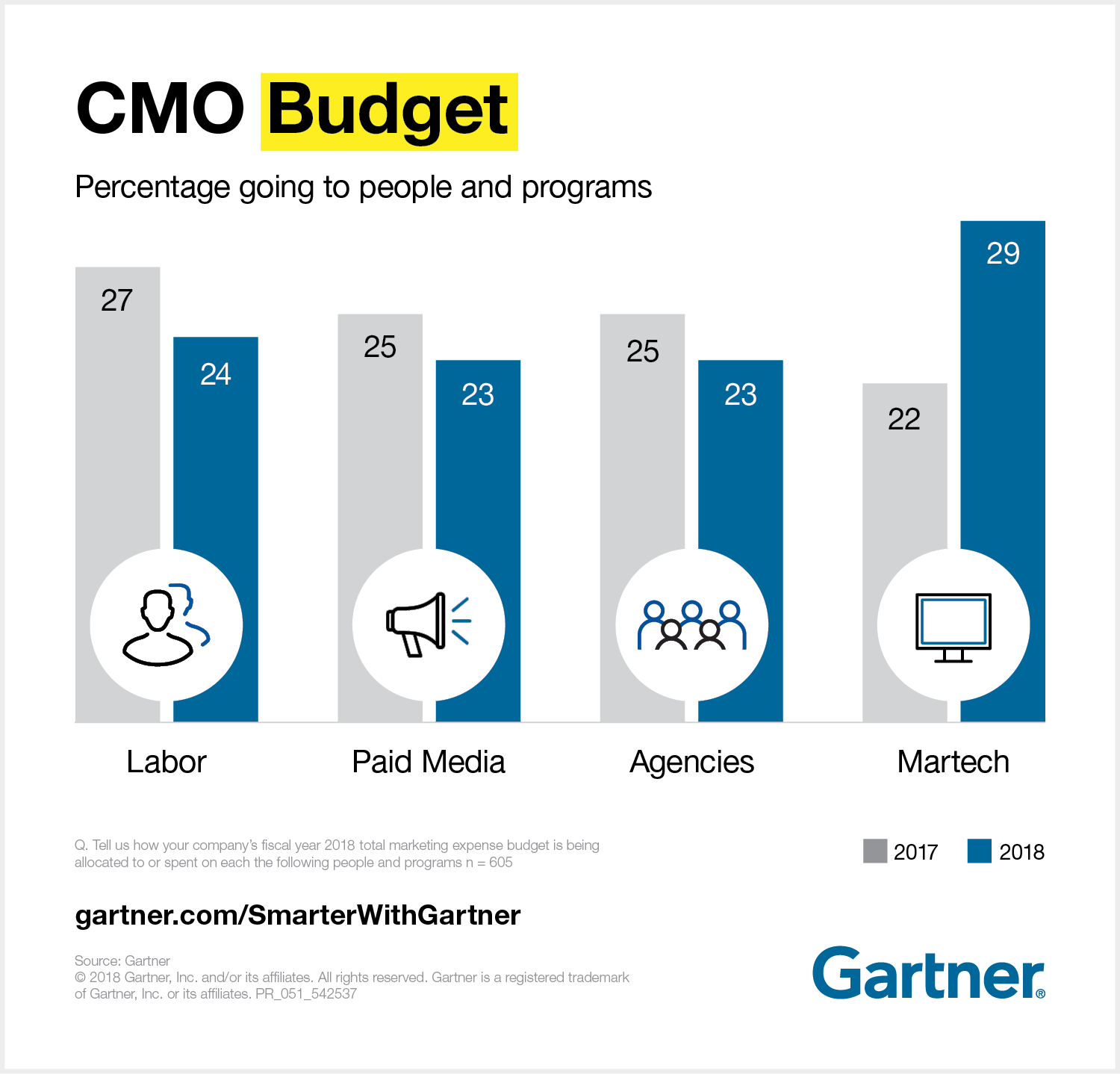Marketing is increasingly technology and data dependent, Gartner’s CMO survey revealed that we are spending almost a third of our marketing budgets on marketing technology and that’s narrowly higher than we are spending on people.
Technology is a part of all of our work and home lives, in the same way that every office worker has had to become way more IT proficient than the previous generations, as we moved from the typing pool to our own laptops and email three decades ago, is it now mandatory that CMO’s need to be technical to be successful?
Have we moved away from the traditional 'typing pool'? via GIPHY
Before I explore the answer to this question, there are two things to qualify.
Firstly, the role of “CMO” is a broad church and the demands of the role are WAY different depending on the size of your organization and budget.
Secondly, we need to define “tech skills” and set the bar.
Astonishingly a couple of years ago I worked alongside a mid-level executive who joined a sales management team, with close to zero spreadsheet and PowerPoint skills. Somehow, he’d skated through a 30-year career without picking up these most basic of “tech” skills (sadly he got let go).
On the other hand, plenty of CMO’s are former developers, like myself (I like to think I can still code). For example, the influential CMO of Freshly, Mayur Gutpa is a former developer (you can read his story here). This is a wonderful career choice for developers, software development as a creative process and if you have the communication skills to match this creative streak it’s a good fit.
But, “being able to code” is a high bar for all CMOs, so, the bar needs to be somewhere between ‘can create a formula in Excel’ and ‘can use a formula object in R’.
On that basis, let’s agree for the purposes of this article “tech skills” means understanding the basic marketing solution building blocks, like a database, servers, content management systems, marketing automation (etc), can navigate the acronyms (CDP, WCM, CRM etc) and could map on a whiteboard how data flows between them. Is this fair?
The arguments against a techie CMO
There are two arguments against techie CMO’s, the first is that it’s really easy to get distracted by the shiny new toys, gadgets and the internal navel gazing and spinning around the optimum way to optimize. A less technical marketing leader is only going to be focused on the outcome and will be dispassionate about the tech, providing leadership to keep the team grounded, the enemy of good marketing could be technical and data perfection.
The second is my aforementioned typing pool analogy. If a CMO recognizes the broad value of marketing technology and the outcomes it can create and they have access to the right people who can color between the lines and make it happen – does it matter that they themselves posess the tech know-how?
Is it more important for today's CMO's to have a creative vision, team leadership and vendor management skills and to remain focussed on the end customer?
The costs are too high
The reality is, the costs are too high to avoid being in the tech detail today. Data breaches, a poorly managed social media storm, spam, lack of GDPR compliance, poor content or code governance can seriously damage a brand, the very thing that a CMO is the custodian of.
With a third of marketing budgets (according to Gartner) being invested in technology, we are spending as much on tech as we are on people. The prequisite skill for any business leader, regardless of role is to be able to lead, nurture and manage people, to get a return on this investment. So, if a CMO is investing the same amount on technology, they need to be similarly focused on optimizing this asset to get a return. Outsourcing this knowledge to someone who potentially has less vested in its success, an agency or system integrator, for example, puts the CMO at a disadvantage (just ask Hertz).

Source: Gartner
Aside from the basic marketing operations that technology serves, the skilful and creative use of marketing technology delivers differentiation, gains awareness and therefore revenue.
Being ignorant of marketing technology is not an option
CMOs need to understand the potential and value of martech, be intelligent clients when dealing with suppliers, vendors and developers, to manage risk and show a level of technical solution leadership.
However, technology is just a tool to deliver marketing outcomes, like awareness, revenue and trust – and someone needs to keep that focus, especially as they still need to be delivered with a human touch, through good people and processes.
The bar that I referred to, of what defines “tech skills” for CMOs is going to depend on the organization, the business they are in, their market, the team they have around them and the resources they have available.
So, do today’s CMOs need tech skills? Probably.
